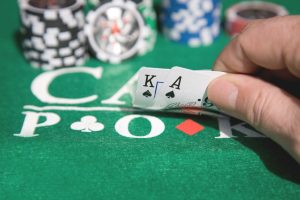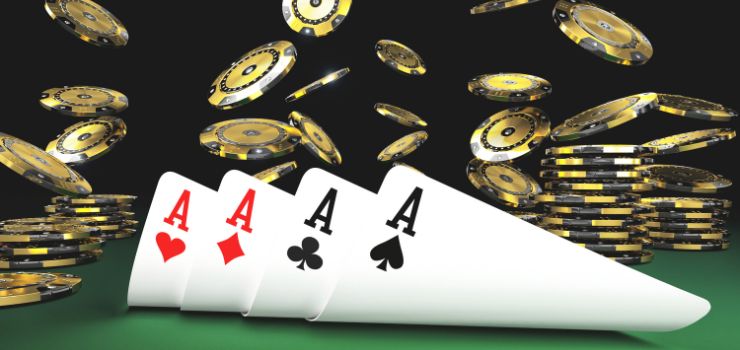
Poker is often pictured as having wily players with bluffing faces. It is considered to be a game that people get better at with experience in reading people. There’s indeed a psychology behind things.
But numbers play a much bigger part than most people realize. This could come in the form of quick calculations or even deeper strategies. Mathematics sits quietly at the heart of many decisions players make during a hand.
A Modern Poker Landscape
The poker scene today is far bigger than its early days. Many tables run around the clock with video streams showing every development. Texas Hold’em leads the pack, especially across North America. It has become the game most people think of first. Many of the best poker players in the world have hailed from the United States and Canada.
Several people playing poker online in Canada will be logging in to play Hold’em (which includes a mix of strategy and luck). The top casinos across the North American region offer a variety of different poker games. We’ve even seen more specific variations and options for things like cash games and stake limits.

Variations like Omaha and Stud games all have loyal communities in the same areas. The games all have their own rhythm and approach, and variations within them.
That variety means there’s space for casual players who want a relaxed game and for strategists who pore over hand histories looking for statistical input. Some people are hugely statistical in the way they think about the game. Other people trust skills like people reading.
That reflects the number of options in poker. Different games can be played with different stakes and variations. People even debate what the correct chip values are for the game!
Please embed the link:
https://www.instagram.com/p/DJPZ_1rx9Sw/
Where the Numbers Begin
Every poker hand hides a set of probabilities. The simplest is understanding how often certain cards will show up. Odds of pairing a starting hand and the chance of hitting a flush by the river. People even consider the likelihood of an opponent holding a better set. All of these come from straightforward calculations.
Players who love the math side talk about “outs.” An out is any unseen card that will improve a hand. Trying to work out their likelihood can help someone decide whether to keep betting or fold.
Here’s an example: If you’re one card away from a straight, you might have eight outs. Knowing how likely those cards are to appear can help make the decisions. This all relates to game theory and mathematics in poker.
Pot Odds and Break-Even Points
There’s also the concept of pot odds. This compares the size of the pot to the cost of calling a bet. They consider the potential reward. Some players make these checks instinctively – others keep the formula clear in their minds and run through it as the action unfolds.
Break-even thinking is another layer. When someone knows they need to win a hand at least 30% of the time to justify a call, they’re applying a slice of game theory to a card table. It doesn’t guarantee a win. What it does is frame decisions with a cool head rather than pure guesswork.
Strategy: Numbers Meet Psychology
Math alone won’t conquer poker. Reading people and balancing risk are just as important. Numbers give structure to all that intuition. Tournament players sometimes use calculations to manage chip stacks and adjust as blinds rise. Cash-game specialists might memorize common odds so they don’t need to pause for long equations mid-hand.
Not everyone digs into spreadsheets or solver software. Some players enjoy a looser style, focusing more on timing and body language than the arithmetic. The interesting thing about poker is that both approaches can find success. Nobody needs to get a degree in mathematics before they start playing.
The Mental Gym of Poker
Poker’s mix of logic and creativity can be appealing to certain players. Even a friendly game forces the mind to weigh possibilities quickly. Should you chase that inside straight or hold back for a better spot? Can you represent a strong hand even if the cards don’t back it up?
Those puzzles sharpen focus and pattern recognition. They may also teach patience within the game. Folding several hands in a row is often the smartest play. It can involve a lot of practice as well as knowing some mathematical basics. Luck is always a factor in determining outcomes.
Some of those versions of poker we discussed earlier are less involved in this way. They might focus more on fortune than they focus on strategy. Some versions of poker stud games reveal different numbers of cards at the start. This can change the whole outlook. Different players have their own preferences for which they want to play.
The range of poker players is as wide as its variations. Some people love the charts and formulas – others go based on their instincts and experience.
The post How Much Math Is in Poker? appeared first on ReadWrite.
